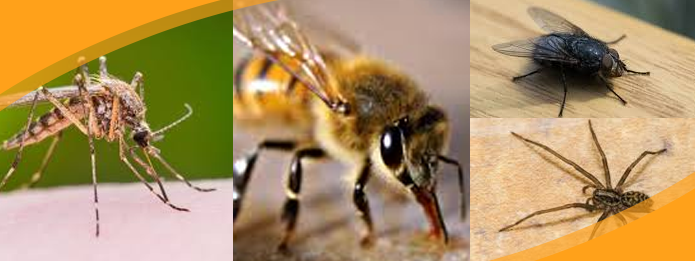Types of Bug Bites Canadians Can Expect this Summer

Bug bites are a common side effect of a fun summer spent outdoors. To help you better identify what bug may be the cause of your bite, as well as some common prevention techniques, read our guide below.
What Kind of Bug Bite Is This?
Not all bug bites are the same. For Canadians, these are the five most common bug bites you can expect over the summer.
Flies
The two most common types of fly bites come from horseflies and black flies. Their bites can be painful but don’t typically cause medical issues for those bitten. The best way to protect yourself, especially if you’re working outside all day, is to wear clothing that doesn’t expose your skin and to spray yourself with plenty of insect repellent.
Mosquitoes
Despite their small stature, mosquitoes can cause many issues. Because of their bloodsucking nature, they can cause infections, such as from the West Nile virus. Even if their bite doesn’t infect you, you will probably experience swelling and itching. The best way to prevent their bite is to use an insect repellent with at least 30% DEET.
Bees, Hornets, and Wasps
While these insects don’t usually bite, they can sting. The best way to avoid a sting from a bee, hornet, or wasp is to try not to anger them. Bear in mind that the said insects, wasps, in particular, don’t sting for no reason because chances are, they are just protecting their territories. That means staying away from their nests and hives as much as possible. If they feel the need to attack, their stings can be painful and induce an allergic reaction. People with known allergies should make sure to keep their EpiPen nearby whenever they’re outdoors.
Spiders
It’s a cliche, but spiders are more scared of you than you are of them. You’re only likely to experience a spider bite when they feel threatened or they have no option of escape. Most spiders aren’t dangerous, but bites from black widow spiders, with their black body and red hourglass markings, require medical attention as soon as possible.
Ticks
If you’re going to spend time in tall grass or a woodland area, make sure to protect yourself from potential tick bites. Their bite can spread Lyme disease, which requires immediate medical care. The best way to protect yourself is to wear clothing that fully covers your legs and arms and spray yourself with insect repellent. If you’re in an area with suspected ticks, make sure to check yourself from head to toe when you get home.
How Can I Prevent Bug Bites?
The best way to prevent bug bites in or near your home is to make it an unfriendly place for insects to breed and grow. For instance, with mosquitoes, you should always make sure to empty and cover anything that holds standing water, such as buckets, old flowerpots, and inflatable pools. Bug zappers may help, too, but may also kill bugs that are beneficial to your yard. Insect repellent with at least 30% DEET can also help stymie a swarm.
When it comes to bugs like wasps, if the nest is small enough and you feel brave enough, you can try to use an aerosol spray specifically designed to kill wasps. It’s best to spray at night when the wasps are resting and lack energy. However, once they feel threatened, they will attack the threat. So, it’s essential to spray from a distance and have a clear escape plan.
How Do I Stop an Infestation?
If you have a bug infestation, call a pest control company like Truly Nolen to analyze the situation and develop the best plan for removal and continued prevention. Truly Nolen handles both residential and commercial locations.
If you’re dealing with too many bug bites at your home this summer, reach out to Truly Nolen today. You can schedule an inspection through our website.